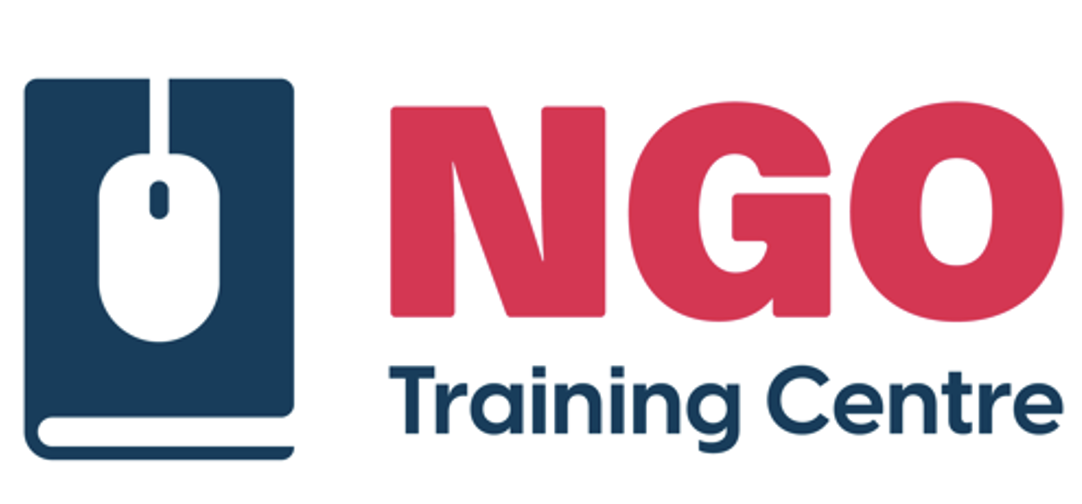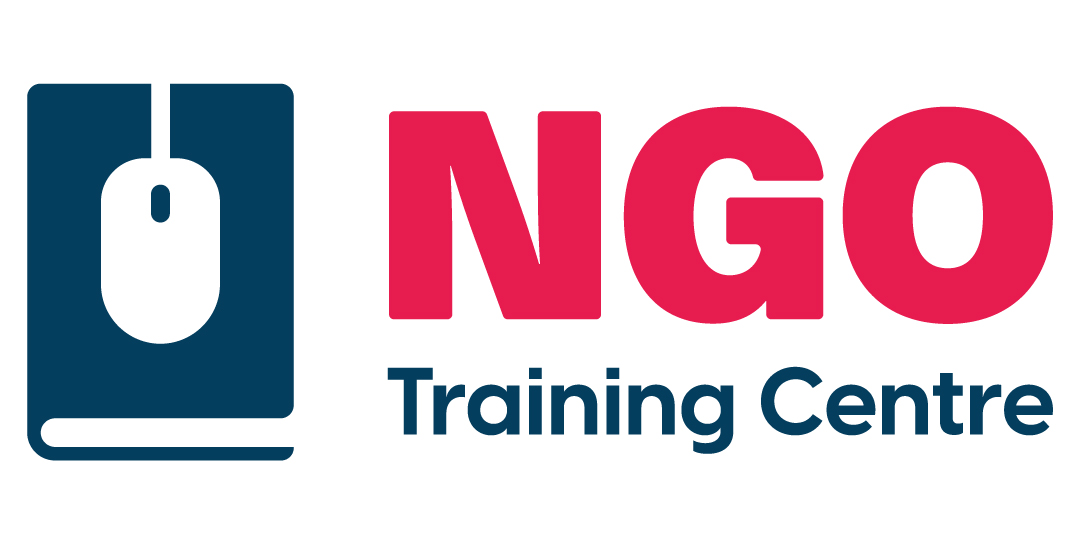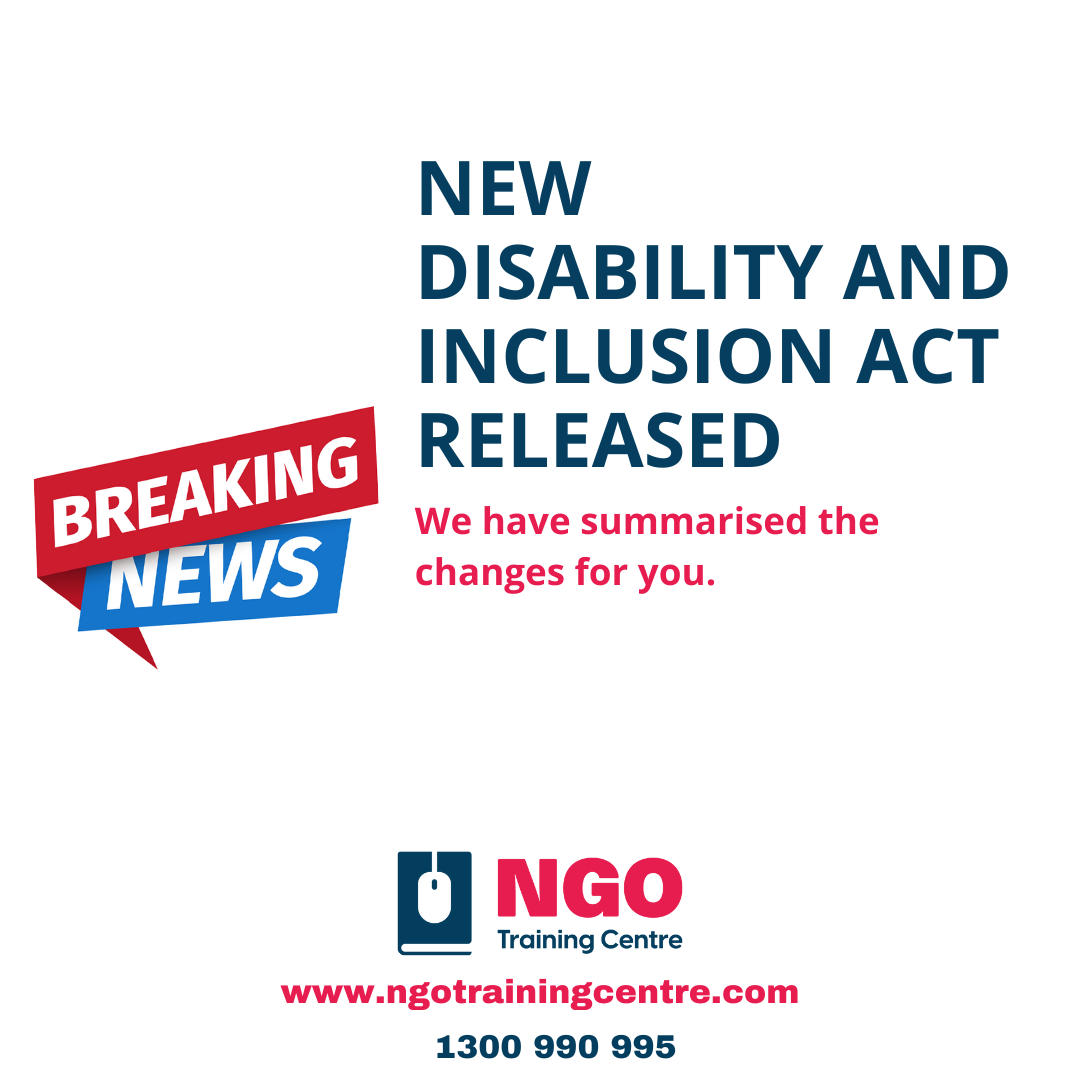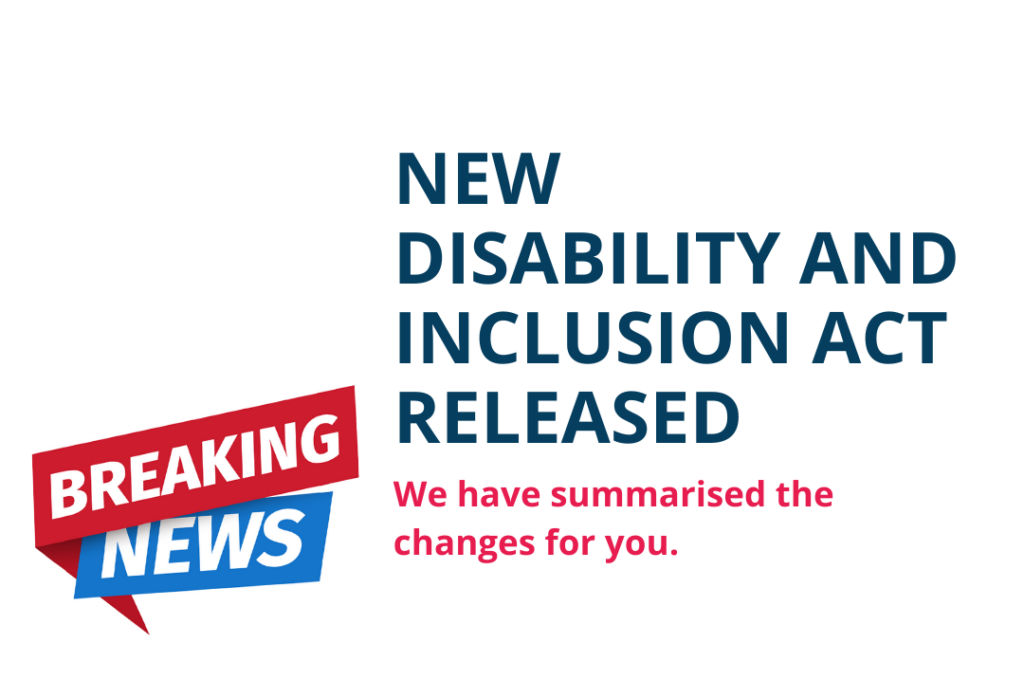
The NEW Disability Services and Inclusion Act 2023
Overview
From January 1st 2024, the 38-year-old Disability Services Act has been replaced with the new Disability Services and Inclusion Act 2023. In essence, the outdated Act no longer meets the needs of People with Disability outside of the National Disability Insurance Scheme and has failed to be inclusive and flexible, which are key improvements of the new Act.
The new Act brings with it a mandatory code of conduct for all Commonwealth disability services, which will ensure these providers are accountable. This will instil greater confidence in people with disability as they will have a safer and more responsive system. The new Act is timely and supports the protection of people with disability following the release of the Final Report into the Royal Commission into Violence, Abuse, Neglect and Exploitation of People with Disability and the NDIS Review Report.
Unlike the National Disability Insurance Scheme Act 2013 (NDIS Act), the new Act does not provide supports or services directly to people with disability. This Act will not change or affect the NDIS or disability support pension paid under social security law. Rather, the Act creates a contemporary, modern and streamlined framework to facilitate funding for supports and services that will assist all people with disability regardless of whether or not they are participants in the NDIS.
Minister Rishworth, Minister for Social Services, highlighted that the legislation establishes a modern legal framework, empowering the Government to implement initiatives that align with the vision of Australia’s Disability Strategy 2021-31 and its five Targeted Action Plans.
What’s changed?
The differences between the Disability Services Act 1986 (DSA) and the new Disability Services and Inclusion Act 2023 (DSI Act) are as follows:
- The definition of Disability has changed. The previous Act defined a target group. The new Act does not define disability so it does not provide limitations on who can access supports and services.
- The old Act only provided for Advocacy, Employment, Print services and other activities approved by the minister.
It now provides for the following services and supports:
- Accessibility
- Accommodation
- Advocacy
- Capacity
- Carers
- Community Inclusion
- Counselling
- Education
- Employment
- Independent living
- Information
- Recreation
- Respite support and services
- Research and evaluation
- Other activities approved by the Minister
- The old Act allowed for grant funding only. Funding can now be arranged via grants, procurement or other types of funding arrangements- allowing for greater flexibility.
- No international obligations were referenced in the previous act. In the new Act, the objects of the Act include alongside other laws, the implementation of the Convention on the Rights of Persons with Disability and other international obligations that Australia is involved in.
- Previously all Advocacy and Employment services were required to obtain a certificate of compliance, regardless of the services provided. Some service providers were subject to compliance under the grant agreement terms and conditions and in operational guidelines which was inconsistent and not transparent. Under the new Act, a consistent requirement for compliance has been established. Providers are only required to have a certificate of compliance if they deliver a regulated activity (which involves the delivery of higher-risk or complex supports through substantial 1:1 contact and over a long period).
- Under the old Act, all providers were required to comply with the National Standards for Disability Services (NSDS) regardless of what other standards were met by them. Under the new Act, all programs are assessed to determine if they require certification. Only regulated activities are required to comply with the NSDS. Alternative standards are recognised which will reduce the regulatory burden for providers who are already subject to other compliance standards. NOTE: This is an important consideration for those providers who are also registered NDIS Providers, approved Aged Care Providers, accredited Health Care Services, registered health practitioners, speech pathologists, translators or interpreters and legal aid commissions.
- A Code of Conduct, which mirrors the NDIS code of conduct has been established. These were previously recognised on an individual basis and were part of individual grant agreements and guidelines. Breach of this Code of Conduct can cause an agreement to be terminated, varied or have further conditions imposed.
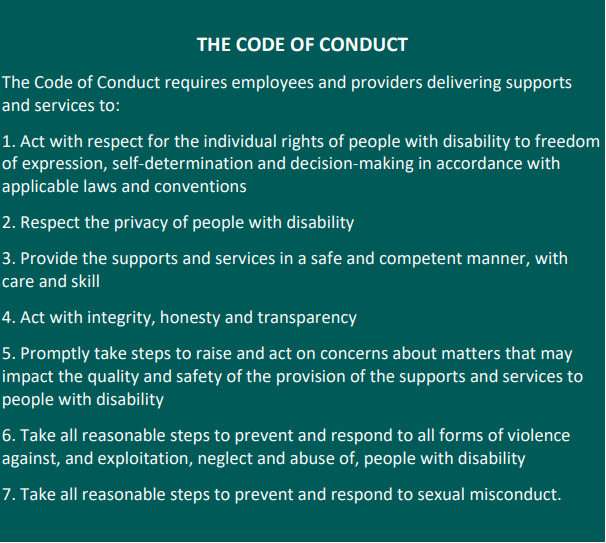
Source: Disability Services and Inclusion Code of Conduct Guidance for Providers December 2023 https://www.dss.gov.au/sites/default/files/documents/12_2023/code_of_conduct_guidance_-_providers_-_pdf.pdf
8. In the previous Act, there were no legislative requirements for either a Complaints Management System or an Incident Management System, and these were different for each program.
Now, all providers are required to have an appropriate Complaints and Incident Management System in place. Need help? Read here How to manage complaints- service providers.
Any alleged breaches of the Code of Conduct must be reported to the Department of Social Services, even if they have dealt with the complaints themselves. Read here about how to determine if a complaint alleges a breach of the Code of Conduct.
What should I do?
- Review and update policies and procedures
- Review and update your organisation’s Code of Conduct
- Update your Compliance Register to include this new Act
Note: The Department has advised that these conditions will not take effect for existing arrangements until current grant agreements end and new arrangements are entered into. However, there will be more information on this released soon.
Want to know more?
For more information about the Disability Services and Inclusion Act 2023, go to the Department of Social Services website at www.dss.gov.au/dsi-act
More information about Australia’s Disability Strategy 2021-2031 and the Targeted Action Plans is available on the Disability Gateway at www.disabilitygateway.gov.au/ads.
Written by Amanda Robinson, B.A., MMentalHealth Prac.
Amanda is a professional with over a decade of dedicated experience in the fields of Mental Health and Disability. Her extensive expertise lies in navigating the intricate landscape of the Disability Sector. She brings a unique perspective to her work, being both a person with lived experience of disability and a compassionate carer. She has a passion for advocacy, making her a staunch champion for the rights and well-being of individuals facing similar challenges.

